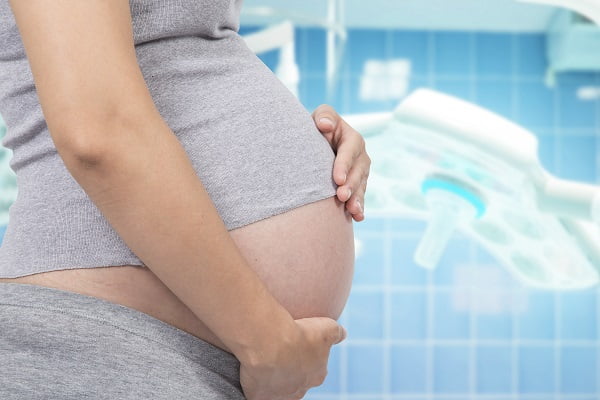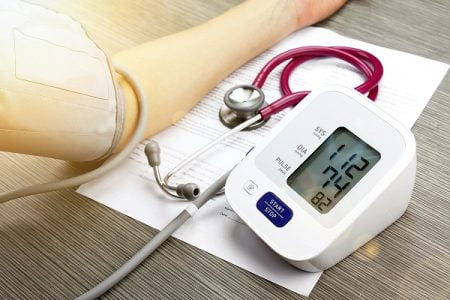Low Blood Pressure During Pregnancy
- Updated on: Jul 13, 2024
- 6 min Read
- Published on Oct 3, 2019


Low blood pressure during pregnancy
Blood pressure is defined as the force of blood pushing against the walls of arteries. Each time the heart beats, it pumps blood to the arteries, which carry the blood to rest of the body. The blood moves through the arteries at a particular rate.
There are several factors which affect the flow of blood through the arteries and cause an increase or decrease in pressure. Decreased pressure results in lower blood pressure reading. This condition is known as hypotension.
During pregnancy, the systolic and diastolic numbers may vary to a great extent and cause sudden changes in your blood pressure. Low blood pressure is commonly experienced by pregnant women. It may not be a cause of concern until you may experience certain symptoms. After the delivery of child, the blood pressure reading may become normal and won’t lead to any further complications.
What is the normal blood pressure during pregnancy?
According to the American Heart Association, the normal blood pressure during pregnancy is 120/80mmHg.
In pregnant ladies, lowering of blood pressure begins during the first 12 weeks of pregnancy (first trimester) and the lowest drop in blood pressure occurs during the second trimester of pregnancy. During the third trimester, the blood pressure may start rising back to normal. After delivery, the blood pressure becomes normal and no signs of hypotension will be observed.
What is considered as low blood pressure for a pregnant woman?
If your blood pressure value is lower than 90/60mmHg, then it indicates signs of hypotension during pregnancy.
A pregnant woman can experience a drop in blood pressure to a variable extent. Usually, the systolic blood pressure drops by 5-10 mmHg and the diastolic pressure may drop by 10-15 mmHg during the first 24 weeks of pregnancy.
During a normal pregnancy, women may experience drop in systolic and diastolic blood pressures, but if you experience any complications during pregnancy then, these values may drop further. You will likely experience a drop in blood pressure only during the gestation period and then it would return to its normal values.
Blood pressure chart during pregnancy
During the first trimester, your blood pressure may start lowering and would reach the lowest during the second trimester. During the third trimester, the blood pressure starts rising and can become normal. The normal blood pressure during pregnancy is 120/80mmHg. Here is a simple blood pressure chart for pregnancy.
| Time period | Systolic Pressure | Diastolic Pressure |
|---|---|---|
| Pre-pregnancy | 108 mmHg | 71 mmHg |
| First Trimester | 104 mmHg | 65 mmHg |
| Second Trimester | 103 mmHg | 63 mmHg |
| Third Trimester | 105 mmHg | 68 mmHg |
| Postpartum | 104 mmHg | 69 mmHg |
Cause of low blood pressure during pregnancy
During pregnancy, body undergoes various physical changes to allow fetal growth and development. These changes involve dilation of blood vessels and hormonal changes in the body, leading to widening of blood circulation system and thereby causing the blood pressure to lower down.
There are certain other factors which lead to low blood pressure in pregnancy, as follows:
Supine hypotension
During pregnancy, the uterus enlarges due to which pressure builds up on large blood vessels, causing hypotension. Supine hypotension usually occurs while lying down.
Postural hypotension
Postural hypotension occurs due to pooling of blood in the legs which restricts the flow of blood to the brain. Such a situation occurs while rising from a sitting or lying position.
Several other factors leading to low blood pressure during pregnancy are:
- Dehydration
- Prolonged bed rest
- Diabetes
- Low blood sugar
- Heart problem
- Thyroid problem
- Severe allergic reaction
- Blood loss/anemia
- Infection
- Malnutrition (commonly due to deficiency of folic acid, vitamin B12 and vitamin D3)
- Certain medications
Symptoms of hypotension during pregnancy
The symptoms of low blood pressure during pregnancy are similar to those experienced by any hypotension patient. These include such as:
- Dizziness or confusion
- Fainting
- Severe lightheadedness while standing up suddenly or rising from a reclining position
- Nausea
- Fatigue which may worsen throughout the day
- Rapid breathing
- Vision problem
- Depression
- Cold, pale or clammy skin
If you experience any severe symptoms during pregnancy such as vaginal bleeding, severe headache, breathlessness, blood loss, chest pain and numbness, then you should consult a doctor immediately. In certain cases, severe symptoms are experienced by those women who suffer from hypotension before pregnancy.
A hypotension patient suffering from sepsis or profound blood loss, can lead to severe symptoms of hypotension such as stroke, kidney failure and heart attack. These symptoms may not be experienced during pregnancy.
Diagnosis of low blood pressure during pregnancy
Presence of low blood pressure is diagnosed through a simple test. This involves placing an inflatable cuff around the arm and measuring the blood pressure (BP) using a pressure-measuring gauge. This test is usually performed at a doctor’s clinic by a doctor or nurse or it can be carried out at home using your own device.
Before checking your blood pressure at home, do consult your doctor regarding when and how often you should check your blood pressure. Read about measuring blood pressure.
Continuous evaluation and record of blood pressure is to be maintained throughout the gestation period. Certain other tests may also be performed as needed to rule out other complications that may occur during pregnancy.
Treatment for low blood pressure during pregnancy
Low blood pressure during pregnancy does not require any treatment as such as the symptoms are mild and not severe. Your doctor may recommend medication only if the symptoms are severe or if they can lead to serious complications.
You can still take some precautions to control your blood pressure at home such as slower physical movements, dietary changes and increased water consumption.
What precautions can be taken to control blood pressure from getting too low during pregnancy?
A pregnant woman can take the following steps when she feels the symptoms of hypotension:
- You should sit or lie down if you feel like fainting or dizziness
- You should never stand up too fast from a seated or lying down position
- You should lie down on your left side so as to increase the blood flow to the heart
- You should not lie down on your back as it can lead to pressurizing the blood vessels by the uterus, which results in restricting the blood vessels and causing lowering of blood pressure
- You should not stand for longer durations
- Keep eating small meals throughout the day
- You should not take hot baths or showers
- Keep yourself hydrated
- You should wear loose clothing
- You should stick to a healthy diet
- You should take your prenatal supplements on a regular basis, as recommended by the doctor
- You can try wearing compression socks, as it improves blood flow in the body
- You should regularly do some mild exercises such as walking to reduce symptoms of hypotension, as it improves blood flow in the body
- You should consume more salt in food, but remember too much of salt in pregnancy can be harmful.
If your symptoms worsen, such as if you may experience fainting or dizziness along with bleeding, severe headache, chest pain and weakness or numbness along one side of the body, you should immediately visit a doctor or rush to a hospital.
Dietary changes that can help improve low blood pressure in pregnancy
The following dietary changes can help increase your blood pressure (BP) in pregnancy:
Increased Fluid Uptake
Dehydration decreases the blood volume and lead to lowering of blood pressure. Increased fluid uptake can lead to rise in blood pressure and prevent dizziness or fainting of an individual.
Increased Salt Uptake
During low blood pressure condition, salt intake should be increased in food items such as through consumption of canned soup, smoked fish, cottage cheese and olives.
Vitamin B12
Low Vitamin B12 concentration leads to anemia, which results in hypotension. During pregnancy, foods rich in Vitamin B12 should be consumed such as eggs, fortified cereals and beef.
Folate
During pregnancy, foods rich in folate should be consumed in higher concentration, such as asparagus, garbanzo beans and liver.
Caffeine
Coffee and caffeinated products boost the cardiovascular system and allow a temporary hike in blood pressure. When blood pressure lowers down during pregnancy, you can drink coffee or tea which may provide some comfort.
Vitamin D3
During pregnancy, you should stay in the sunlight for short durations, as vitamin D3 strengthens bones of the baby.
Omega-3 Fatty Acids
Foods rich in omega-3 fatty acids should be consumed during pregnancy, such as pacific salmon, flounder, wild Alaska and tilapia fish.
Potassium and Magnesium
During pregnancy, vegetables and fruits rich in magnesium and potassium should be consumed such as spinach, kale, sweet potatoes, banana, kiwi and papaya. Some nuts such as almonds, walnuts, cashews and peanuts can also be eaten.
Foods you should avoid when you experience hypotension during pregnancy are as follows:
- You should avoid alcohol
- You should avoid high carbohydrate foods
- You should avoid oily, spicy or fried, refined or processed foods
Risks of low blood pressure during pregnancy
During pregnancy, low blood pressure does not usually add risks, until the symptoms are observed enough. As the blood pressure drops down, you may fall due to fainting. The fall may cause injuries and internal issues.
If you experience severe drop in blood pressure, then it may lead to serious or life-threatening problems, such as organ damage or shock. This may restrict the blood flow to the baby and may cause risk to his/her life.
In certain cases, extreme decrease in blood pressure may be due to implantation of the fertilized egg outside the uterus. Such a condition is known as ectopic pregnancy.
If low blood pressure continues during the third trimester of pregnancy or for an extended period of time, then you should consult a doctor.
Reports indicate that low blood pressure during pregnancy is usually experienced by those ladies who already have hypotension before pregnancy.
Can low blood pressure be risky for your baby during pregnancy?
There is limited scientific evidence available which indicates that low blood pressure during pregnancy can be risky for the baby. Cases of stillbirth and low birth weight have been reported due to hypotension, though. These risks can also be observed due other medical complications in pregnancy. Therefore, significant research is required to analyze the risk of hypotension during pregnancy before making any conclusions.












